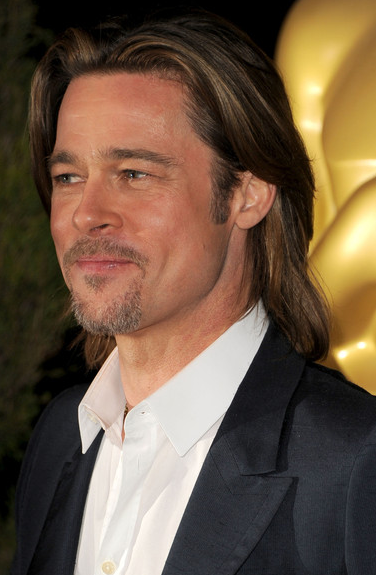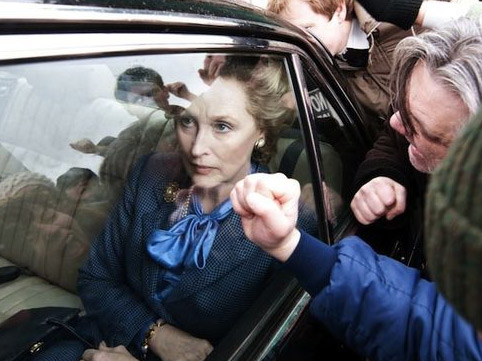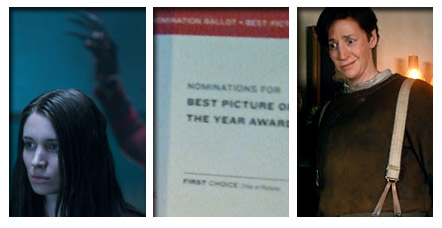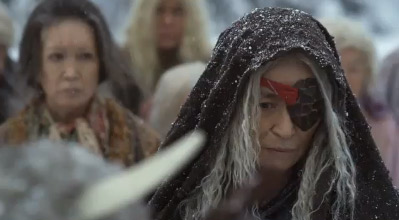12 Linkeys
 Thursday, February 9, 2012 at 10:02PM
Thursday, February 9, 2012 at 10:02PM  Brad to the Bone
Brad to the Bone
Yahoo Movies Another Oscar roundtable I participated in. This time I'm talking Best Actor with Thelma Adams, Sasha Stone and others. I kick it off with more Brad love.
Serious Film on Brad Pitt's winning streak. It's not just 2011.
Press Play stumps for Brad Pitt (Moneyball) for Best Actor. It's weird all the excitement seemed to be in Best Actress until just recently and then Best Actor was all anyone could talk about. Maybe because it still feels like a race?
Links
Flavorwire Ridley Scott and Michael Fassbender for a new Cormac McCarthy penned movie?
Guardian Naomi Watts signs to play Princess Diana in a bio directed by Oliver Hirschbiegel (Downfall) called Caught in Flight on the last two years of her life. I guess we need to start thinking about all the 2012 2013 Best Actress contenders.
NY Post Daniel Radcliffe not happy that Harry Potter 7.2 was not Best Picture nominated. And here I thought people had stopped thinking about that.
In Contention Happy 80th birthday for John Williams
Funny Or Die Jean Dujardin auditions for every villain role
Carpetbagger has been doing a series where they invite celebrities to fill out fake Oscar ballots (i.e. non AMPAS members. Today Tabatha Coffey. I always wanted to do this random celeb Oscar chat thing but alas, The Film Experience doesn't have the clout of The New York Times. Someday ;)
Boy Culture excavates an old Madonna interview from when she was only 34 wherein she talks about aging and knows that people will want to put her out to pasture soon. We love that she's living her ideals 19 years later and not allowing that. Given that life expectancy keeps moving up in years, you'd think civilians (who age faster than celebrities!) would stop groaning about celebrities that are "too old" to be entertaining us. I'm pretty sure in 20 years times I'll still rather see Meryl at 83 than, you know, some random 20 year old Hollywood is trying to shove down my throat. May all the talented ones keep working until they croak! This goes for the fresh ones too who are just starting out. Jessica Chastain, pace yourself. We hope to enjoy you when you're 71... if we're still alive!
Finally... the Berlinale Film Festival kicked off today with Opening Ceremonies. Here are the jurors arriving and lining up... which I snapped from the live feed.

From left to right: Director Asghar Farhadi (last year's Berlinale winner for A Separation), Actress Charlotte Gainsbourg, Director Mike Leigh, Actress Barbara Sukowa, Director Francois Ozon, Director Anton Corbijn, Writer Boualem Sansai, and Actor Jake Gyllenhaal ("Jakey!!!") who the crowd and photographers went wild for the second he stepped out of the car and onto the red.
Sundance is the first major festival of each new film year but Berlinale is always hot on its heels. Will anything as great as A Separation debut there this year? We'll soon hear.
 Berlin,
Berlin,  Best Actor,
Best Actor,  Brad Pitt,
Brad Pitt,  Harry Potter,
Harry Potter,  Jean Dujardin,
Jean Dujardin,  Madonna,
Madonna,  Oscars (11),
Oscars (11),  film festivals
film festivals 











